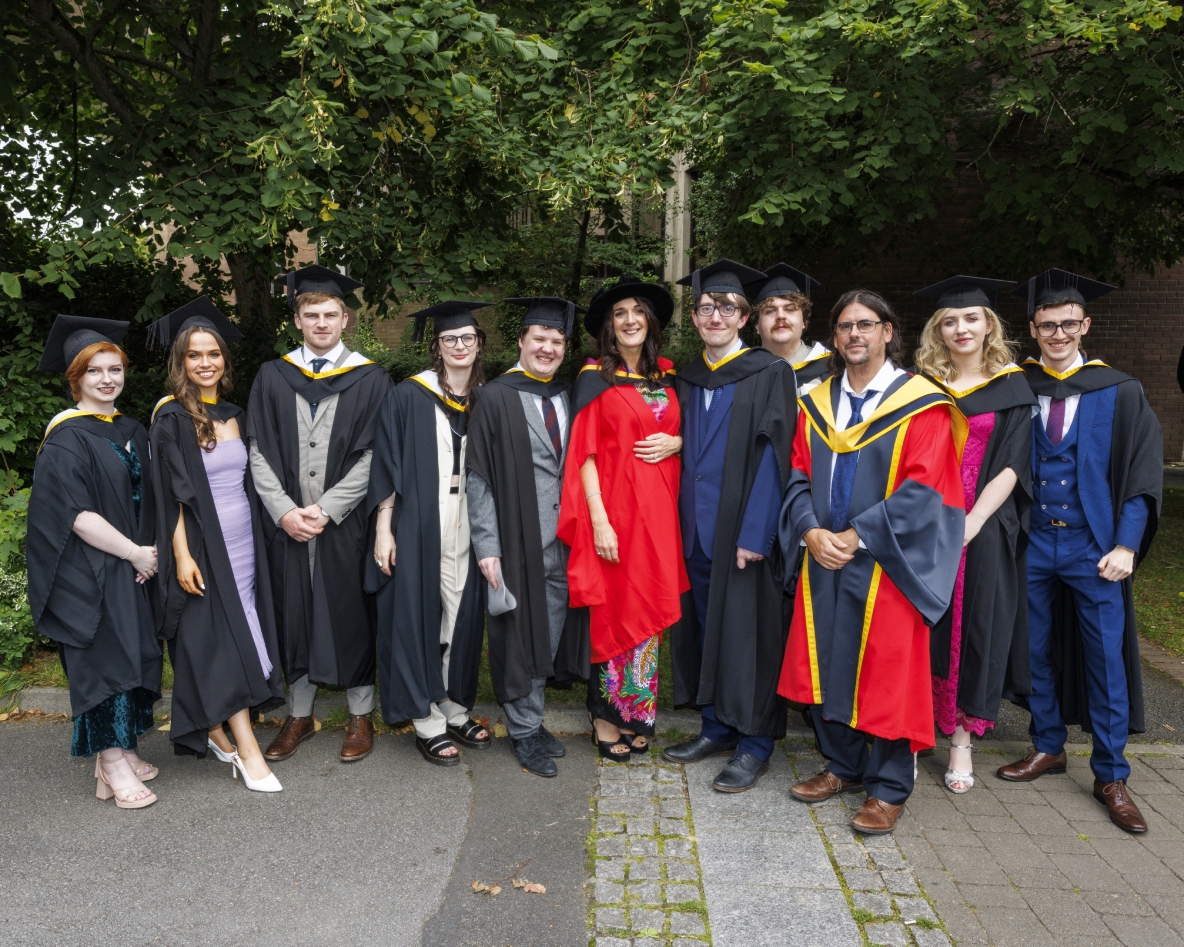
Journalism students at University of Limerick were encouraged to “be the voice for the voiceless” as they graduated this week.
Journalist turned University of Limerick lecturer Kathryn Hayes was awarded her PhD in front of some of her own students at the Autumn Conferring Ceremony this Tuesday afternoon – part of a wider group of over 3,500 students graduating from UL this week.
The new Dr Kathryn Hayes, Course Director of Bachelor of Arts in Journalism and Digital Communication, reflected on the journey of her graduating students head of the conferring ceremony this Tuesday, mindful of the challenges they might encounter, and the toolkit of skills the programme provides to shape them into resilient journalists and communications professionals.
“We are really proud of our class of 2023 students,” Dr Hayes said. “So many of them are already in full-time employment, which is wonderful and a testament to the hard work they put in during their time at University of Limerick.
“Bear in mind this class had those two years during COVID-19 where they were separated from each other, and they came back and just hit the ground running and were so passionate. They did really well at the National Student Media Awards earlier this year, with a record number of nominations and awards. So, this is a huge day for them.”
Navigating the world of media and journalism has never been more complex and Dr Hayes acknowledged the challenges that lie ahead for the graduates.
“You have to ask the hard questions, and you have to shine a light in dark places. You have to be the voice for very often the voiceless, and you need to do this across a number of different platforms because your audience is so varied now. It’s so transient, so fast-moving, and sometimes very frustrating.”
The undergraduate journalism programme has been crafted to equip students with the skills they need, from multimedia storytelling to news website and newspaper production of the award-winning Limerick Voice.
“Students come into us from Leaving Certificate, and they love to write long, lengthy, flowery pieces,” Dr Hayes explained.
“We teach some newer skills that you’re required to have in the workplace, like live tweeting events. I came to UL from the journalism industry, an industry that’s changing every day.”
Caleb Brennan, a journalist and researcher with Newstalk who graduated with a BA in Journalism and New Media on Tuesday, said his time in UL was “special”.
“It’s crazy how, at the start of my four years in UL, I was only a curious newsy person, but now I have grown to become a full-fledged media professional,” he explained.
“It was a difficult journey at times, being in first year when the pandemic hit, but through the superb effort by the staff – in particular, the lecturers – not only did we learn the crucial aspects of journalism, but we fell in love with the passion the many aspiring journos have.
“Their tireless efforts and close mentorship crafted me into the journalist I am today. It’s a testament to the work that Kathyrn, Fergal, Audrey, Henry, and the whole journalism department do for us.”
Aislinn Kelly, a journalist and researcher with Limerick’s Live 95FM who won a national student media award for features writing at the Smedias this year and also graduated from the same course on Tuesday, said studying journalism at UL was “the best decision I have ever made”.
“Being exposed to all aspects of media – from law to TV production – helped me find a niche I loved, which is broadcast journalism. My co-op placement was with Live 95, where I was delighted to receive a job offer upon graduating. The mentorship I received from the department was top-class, and the friends I made here in both the degree and clubs in UL were phenomenal,” Aislinn explained.
For Dr Hayes, it was a proud day, not only for her students, but her family too.
“My Mom worked in UL for 35 years, so today is a big day for her. She worked here when it was NIHE, in the library, which was located in the basement of Plassey House. So, she’s very proud.”
Reflecting on her own learning journey, Dr Hayes explained that the research for her doctorate was initially focused on working conditions for journalists.
“I started off looking at working conditions within freelance journalists,” she reflected. “But as I was doing the research, I realised a lot of these issues also affect people in full-time employment, notwithstanding the security of a contract, bad pay, stress, and burnout. So, the title of my thesis is ‘Labouring the News and Exploration of Working Conditions in Journalism’.”
Dr Hayes chose to write her thesis by publication and explained that the research made her look at journalism from another angle.
She explained: “The research allowed me to look at journalism through a different lens and to stop and reflect because we are not that reflective as practitioners.
“I learned how important it is to look at the conditions journalists work in before the copy is written and the stories go out. While judging and critiquing the output is important, we also need to look at what’s happening before the work is done.”